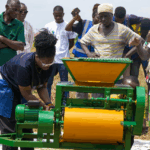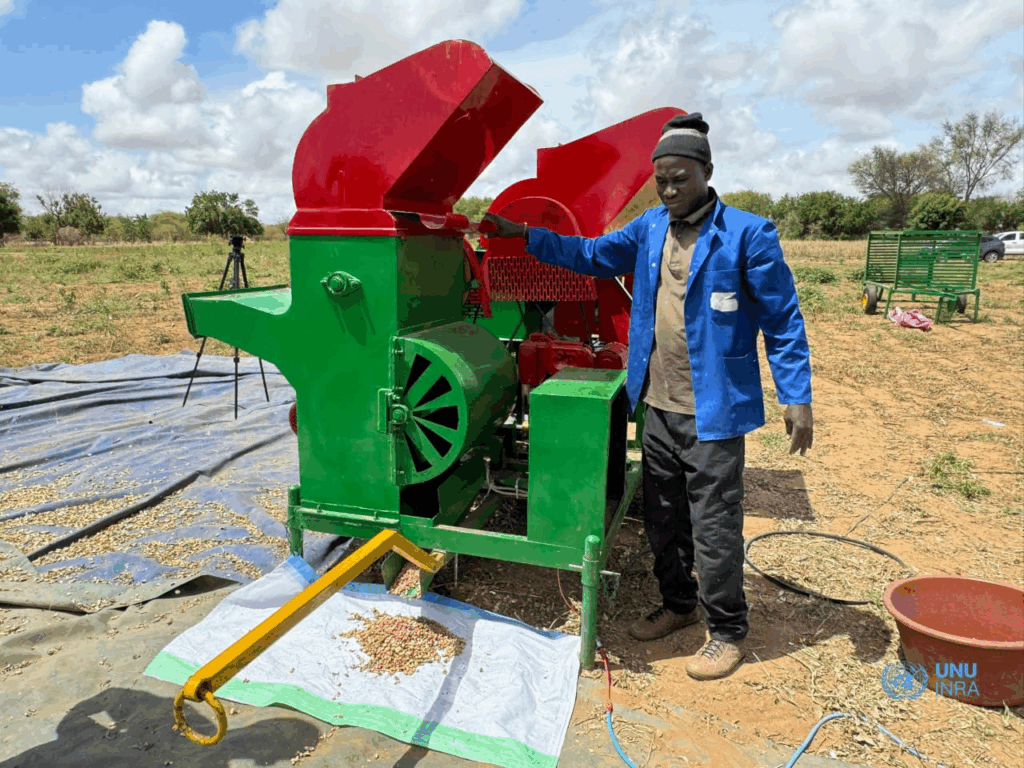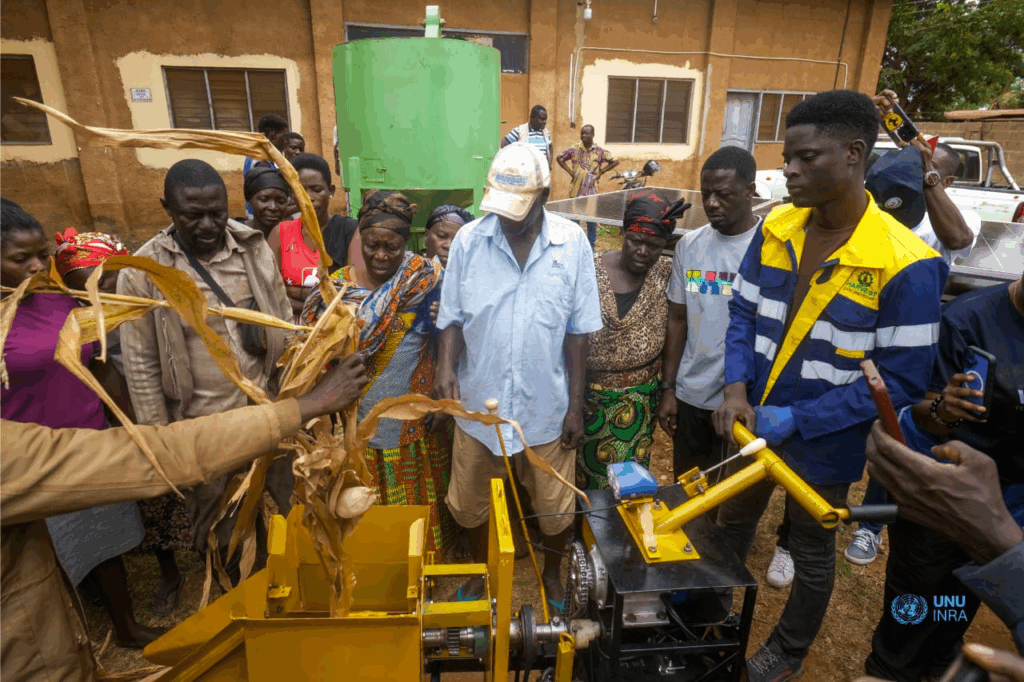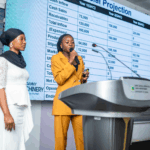
Ten young Ghanaian agritech innovators are showcasing their newly improved, efficient, and clean energy-powered agritech as part of the United Nations University (UNU) – Institute of Natural Resources in Africa (INRA) Innovate for Clean Agricultural Technologies project.
The Innovate for Clean Agricultural Technologies (INFoCAT) piloting tour in some farming communities in Ghana aims to demonstrate the creativity and problem-solving capabilities of young green innovators who have designed context-appropriate clean technologies to enhance agricultural productivity.
In a press release by UNU-INRA in Accra, it said the project will also expand access to clean energy agritech solutions and reduce drudgery in smallholder farmer communities in Ghana, Senegal, and Côte d’Ivoire, especially for women.
After this piloting stage and a rigorous appraisal of these innovations, one innovator from Ghana and two innovators from Senegal and Côte d’Ivoire, respectively, will receive $37,000 to scale up their innovations/businesses.
During the programme, the innovators present will test-run and demonstrate how their agritechnologies function. Smallholder women farmers are trained in the effective operation of the technologies.
Key stakeholders, including the Ministry of Food and Agriculture, District Assembly members, renewable and agricultural experts, smallholder farmers, and agro-processors, discuss the fine-tuning, scalability, sustainability, and adoption pathways of these agritech solutions.
In Ghana, innovations are piloted in Namesi, Yilo Krobo District of the Eastern Region, Aveyime in the North Tongu District of the Volta Region, and Gomoa East District in the Central Region.
Innovations include:
1. Integrated Cassava Processing Unit: A cassava peeling and washing machine, a cassava grater, an energy-efficient multi-fuel gari (cassava flakes) roaster, and a biogas system.

This biogas system produces and stores biogas to power a biogas generator that supplies electricity for use in the facility (where this unit is kept).
2. A solar-battery-powered grain dryer, a solar-powered rice winnower, a smart solar-powered irrigation system, a groundnut plucking machine, and a mini combine harvester to harvest and dehusk maize.
In July, some clean agritech solutions were also piloted in Senegal: Bambèye (Diourbel region), Toubacouta (Fatick region), Taiba Niassène (Kaolack region), and Gapakh (Kaolack region).
These innovations include a groundnut pod plucker and dehuller, a mobile solar-powered cool house for the preservation of harvested food crops, a cashew nut crusher, a smart solar-powered irrigation system, and a dynamo energy generator.
The INFoCAT innovators in Côte d’Ivoire will be piloting their clean agritech innovations in the coming months.

UNU-INRA is one of the 14 research institutes of the United Nations University (UNU). It aims to bridge the gap between science and natural resource management policies in Africa, with a mandate to strengthen African national institutions’ capacity to manage natural resources.
It is an initiative funded by the International Development Research Centre (IDRC) under the Clean Energy for Development program.
A key element of these innovations is the renewable energy component, with agricultural and renewable energy experts coaching these young innovators throughout the process of fine-tuning these machines to make them more environmentally friendly.
- President Commissions 36.5 Million Dollars Hospital In The Tain District
- You Will Not Go Free For Killing An Hard Working MP – Akufo-Addo To MP’s Killer
- I Will Lead You To Victory – Ato Forson Assures NDC Supporters
Visit Our Social Media for More




